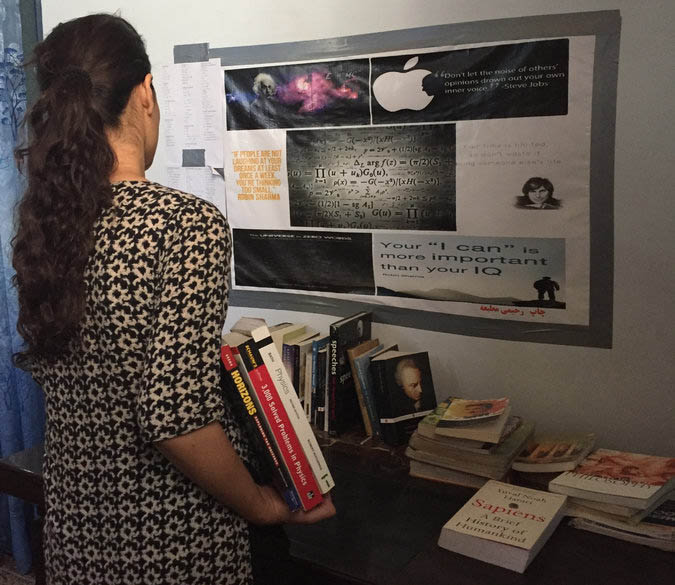
TUESDAY, June 7, 2016

Autodidact
Bliss for special needs children
Eric Lee, A-SOCIATED PRESS
TOPICS: SELF EDUCATION, BLISSMBOLICS, LOGICAL LANGUAGE
"Self-education is, I firmly believe, the only kind of education there is." — Isaac Asimov
TUCSON (A-P) — For every child who can teach themselves a foreign language from little more than a dictionary and a few magazines, then with internet learn to speak it, learn trig and calculus from Khan Academy, and at 20 converse with a world class physicist via Skype, well, there are hundreds of thousands of the merely bright who could, with a little help from Rosetta Bliss, teach themselves Bliss and read Encyclopedia Bliss when having a dictionary and a few magazines would not be enough. And, yes, having an internet could help. The internet technology question is whether for the 99% it does more good than harm, or is it the 57% or 7.5%?
In the 20th century there was Srinivasa Ramanujan, the Indian small-town boy who went to Cambridge. In the 21st century, so far, there is Sultana, the fifth grade dropout who is maybe today's autodidact poster child. The following is from a NYTimes story:
Sultana lives in the Taliban heartland of southern Afghanistan, and when she was in the fifth grade a delegation visited her home to warn her father to pull her out of school, or else she would have acid flung in her face. Ever since, she has been largely confined to her high-walled family compound — in which she has secretly, and perilously, educated herself.
“I’m unstoppable,” Sultana laughs, and it’s true: She taught herself English from occasional newspapers or magazines that her brothers brought home, in conjunction with a Pashto-English dictionary that she pretty much inhaled. When her businessman father connected the house to the internet, she was able to vault over her compound walls.
“I surrounded myself with English, all day,” she told me by Skype. Today her English is fluent, as good as that of some Afghan interpreters I’ve used.
Once she had mastered English, Sultana says, she tackled algebra, then geometry and trigonometry, and finally calculus BC. She rises about 5 a.m. and proceeds to devour calculus videos from Khan Academy, work out equations, and even read about string theory.
Sultana, now 20, says she leaves her home only about five times a year — each time, she must wear a burqa and be escorted by a close male relative — but online she has been reading books on physics and taking courses on edX and Coursera. I can’t independently verify everything Sultana says, but her story generally checks out. After reading a book on astrophysics by Lawrence M. Krauss, a theoretical physicist at Arizona State University, she reached him by Skype, and he says he was blown away when this Afghan elementary school dropout began asking him penetrating questions about astrophysics.
“It was a surreal conversation,” Krauss said. “She asked very intelligent questions about dark matter.”
Krauss has become one of Sultana’s advocates, along with Emily Roberts, an undergraduate at the University of Iowa who signed up for a language program called Conversation Exchange and connected with Sultana.

Sultana at her desk in a photo taken by her family.
By Skype, Emily and Sultana became fast friends, and soon they were chatting daily. Moved by Sultana’s seemingly unattainable dream of becoming a physics professor, Emily began exploring what it would take for Sultana to study in the United States.With Emily’s help, Sultana has been accepted by a community college in Iowa, with a commitment by Arizona State University to take her as a transfer student a year later. Emily started a website to raise money for Sultana’s university education.
Sultana reminds us that the greatest untapped resource around the globe isn’t gold or oil, but the female half of the population....
I wish we understood that sometimes the most effective weapon against terrorists isn’t a drone but a girl with a book.
Sultana now spends her days working on calculus equations, listening to Bon Jovi and doing household chores while listening to the BBC or self-help audiobooks. It also turns out that she is a longtime Times reader and gets my email newsletter. She’s now working her way through more serious reading: Kant’s “Critique of Pure Reason.”

